| Medically reviewed by
Robin Backlund, BHSc
Last update:
Watch, or listen the video if you don’t want to read it.
A blood pressure reading of 186/134 mmHg indicates that you are at a HYPERTENSIVE CRISIS, as per the latest guidelines from the American Heart Association, which define it as being above 180/120 mmHg.
If you encounter such a reading, urgently call 911 or your local emergency number as this requires immediate medical attention.
While these figures are concerning for all – including children, adults, the elderly, and pregnant individuals – they can lead to severe complications such as stroke, heart attack, or kidney failure if neglected.
It’s crucial to understand that blood pressure readings can fluctuate based on age, gender, weight, and overall health; what’s deemed ‘good’ may differ based on individual medical history and existing health conditions.
Was this helpful?
Contents
What does a 186/134 blood pressure mean?
Blood pressure is a crucial indicator of one’s cardiovascular health. When readings soar to levels like 186/134, it’s a clear sign of a serious medical condition known as a hypertensive crisis.
This condition manifests when an individual’s blood pressure readings consistently exceed the 180/120 threshold.
Here is a blood pressure chart according to the latest guidelines of American Heart Association (AHA).
STAGE | SYSTOLIC mm Hg [upper #] | DIASTOLIC mm Hg [lower #] |
Normal Blood Pressure | Less than 120 | Less than 80 |
Elevated Blood Pressure Pre-Hypertension | 120-129 | Less than 80 |
High Blood Pressure Hypertension STAGE 1 | 130-139 | 80-89 |
High Blood Pressure Hypertension STAGE 2 | 140-180 | 90-120 |
Hypertensive Crisis Consult your doctor immediately | Higher than 180 | Higher than 120 |
There are two primary classifications of a hypertensive crisis.
- Urgent Hypertensive Crisis: This is characterized by blood pressure levels that surpass 180/120 but do not result in damage to the body’s organs.
- Emergency Hypertensive Crisis: This is a more severe form where the 186/134 causes damage to end organs, necessitating immediate emergency care.
For context, a healthy individual’s ideal blood pressure range lies between 91/61 and 119/79. A reading of 186/134 mmHg is alarmingly high, indicating a significant deviation from optimal health.
Such elevated blood pressure levels place significant strain on the blood vessels, potentially stressing the heart and leading to further complications.
This can lead to an elevated heart rate, which, over time, can adversely impact cardiovascular health. In a study “High Blood Pressure and All-Cause and Cardiovascular Disease Mortalities in Community-Dwelling Older Adults” published in 2015 in Medicine Baltimore, consistently very high blood pressure is identified as a leading factor in increased mortality in the geriatric population.
If left untreated, a hypertensive crisis can pave the way for heart disease and other related complications, making it a crucial health metric that needs constant attention.
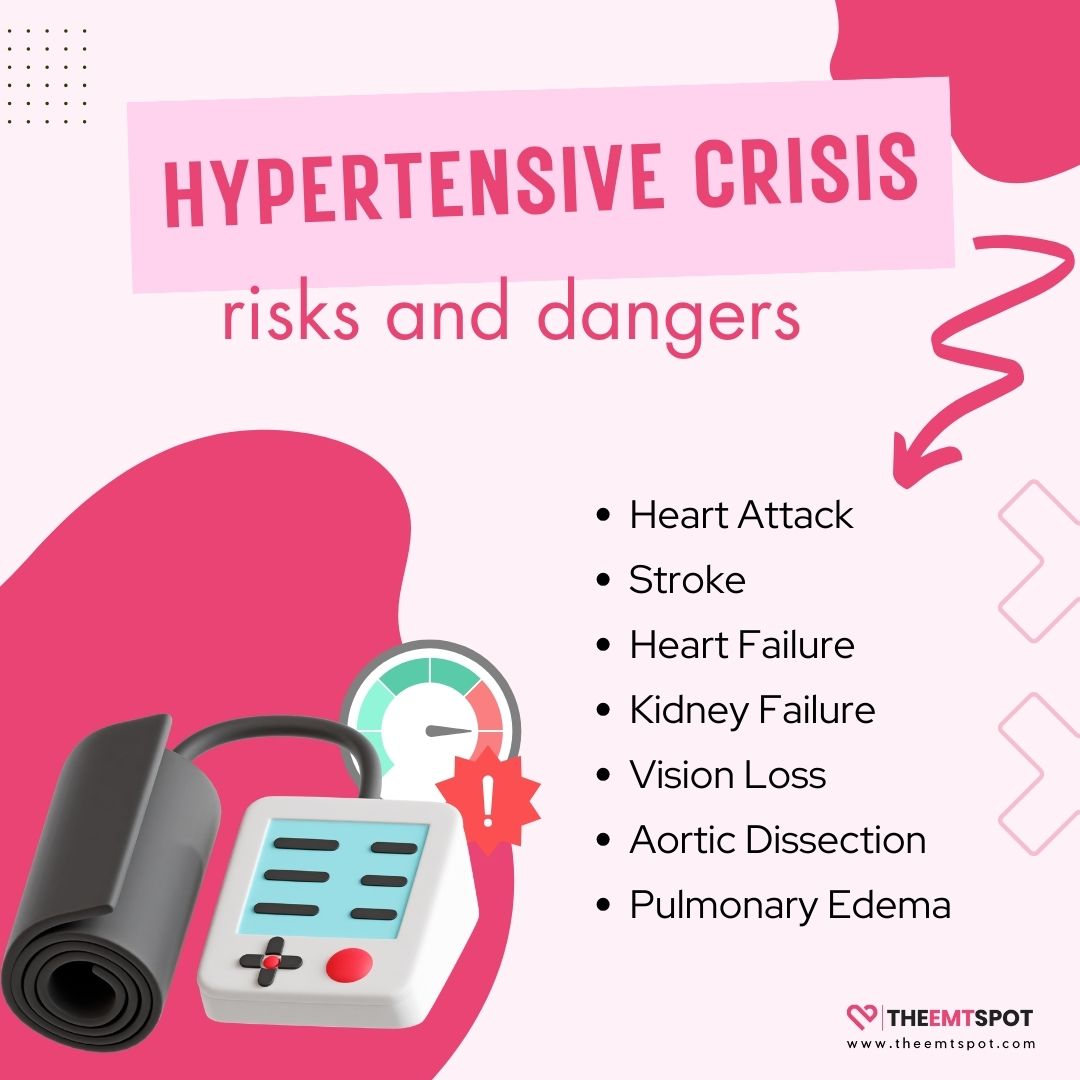
The most effective approach to manage and mitigate the risks associated with high blood pressure is through appropriate medication and lifestyle changes.
Consulting with a cardiologist or a specialized healthcare professional can provide tailored guidance, ensuring individuals embark on a path toward improved health and well-being.
Following are some of the clear indications that you have 186/134 blood pressure.
- Blurred and faded vision.
- Nausea and vomiting (blood sometimes).
- Chest pain and higher heart rate (arrhythmia).
- Seizures.
- Severe headache.
- Confusion and lack of comprehension.
- Difficulty breathing.
- Excessive sweating.
What is the Mean Arterial Pressure (MAP) for a blood pressure of 186/134 mmHg?
The Mean Arterial Pressure (MAP) for a blood pressure of 186/134 mmHg is:
What is the Pulse Pressure (PP) for a blood pressure of 186/134 mmHg?
The Pulse Pressure (PP) for a blood pressure of 186/134 mmHg is:
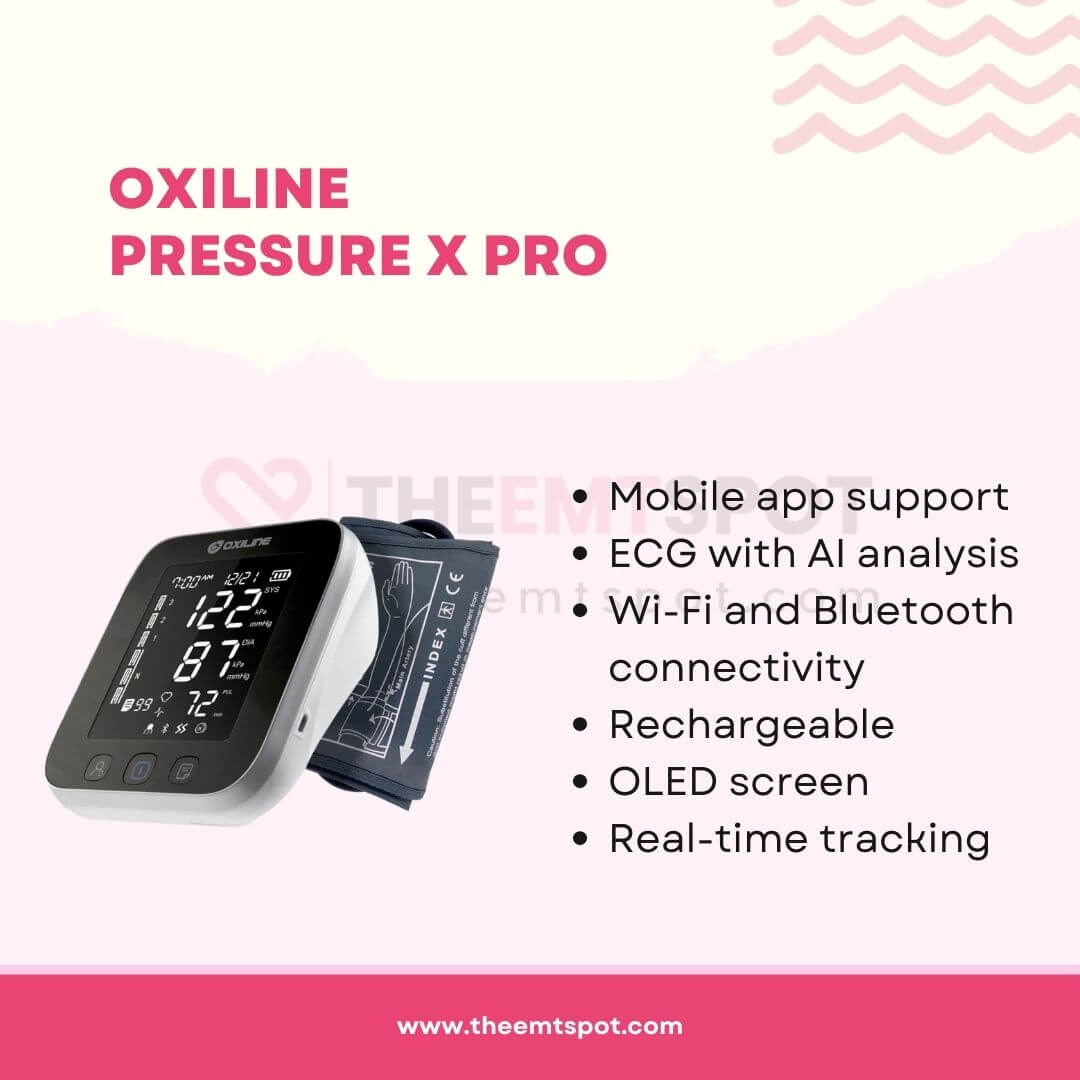
🚨 Exclusive Offer for TheEMTSpot’s Readers 🚨
Are you looking for a reliable way to monitor your blood pressure at home? Look no further! Introducing the Oxiline Pressure X Pro, your go-to device for accurate and hassle-free readings.
Use code EMTSPOT10 at checkout and get an instant 10% OFF THE PRICE!
Don’t miss out on this limited-time offer. Take control of your health today!
What should you do if you have 186/134 mmHg blood pressure?
Here is a set-by-step procedure to follow when you figure out you have a blood pressure of 186/134 mmHg.
- Urgently call 911 or local emergency services
- Adopt these lifestyle changes immediately
- Consider using blood pressure medications
- Craft a balanced blood pressure-friendly diet
- Monitor for additional health conditions associated with hypertensive crisis
- Support with natural supplements
1. Urgently call 911 or local emergency services
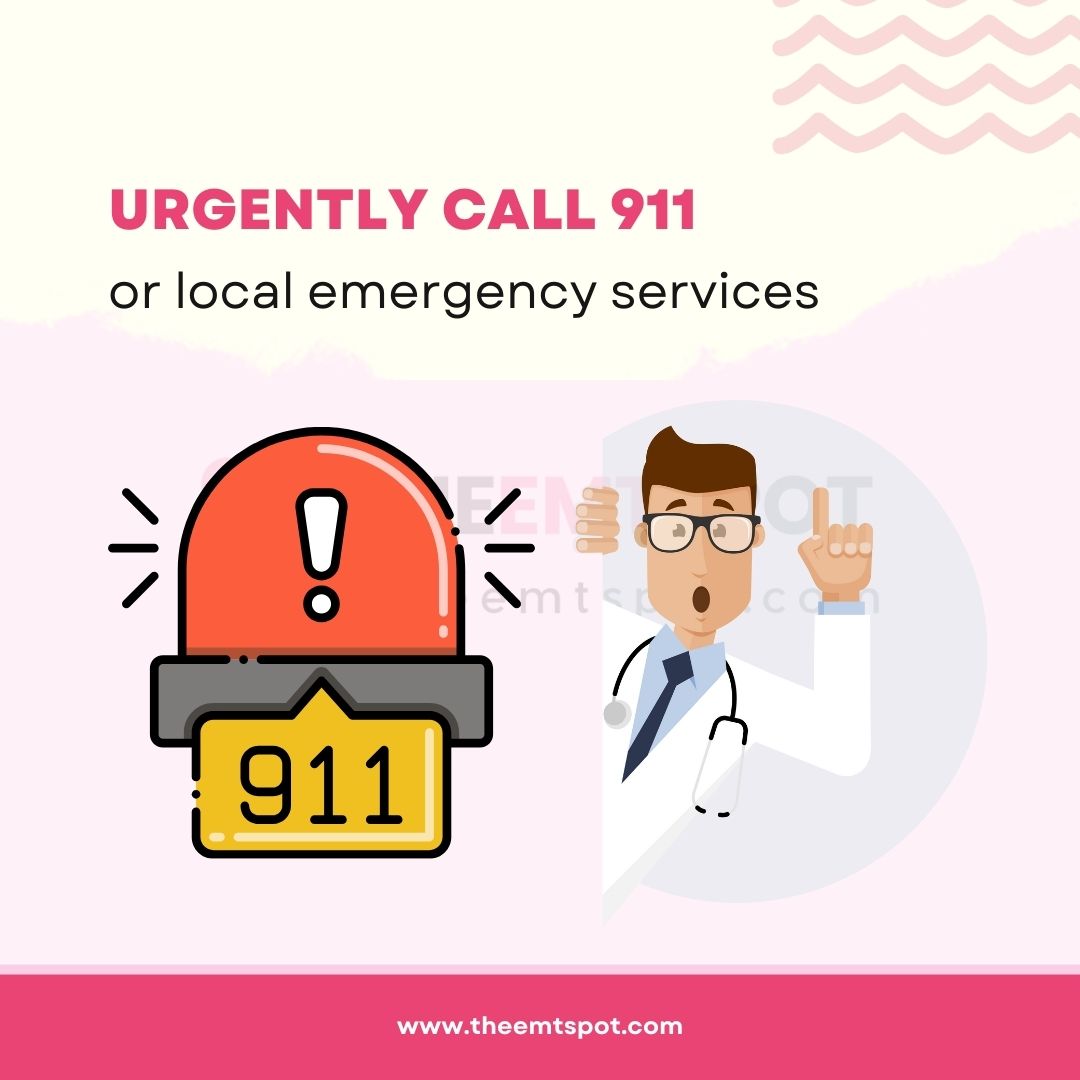
In the event of a hypertensive crisis where your blood pressure reads 186/134 on your home device, the first and foremost step is to immediately call 911 or your local emergency services. This is crucial to verify your blood pressure level and to ensure prompt medical intervention if necessary.
When experiencing such high blood pressure numbers at home, it’s important to recognize that these readings need immediate clinical assessment by trained professionals. Emergency services can provide a quick and accurate evaluation, confirming whether your 186/134 is a cause for immediate concern.
It’s worth noting that at-home blood pressure readings can sometimes be misleading. Inaccuracies might arise due to errors in reading, malfunctioning of the device, or even your physical or mental state at the time of measurement.
This approach is supported by findings from a study titled “Masked and white coat hypertension, the double trouble of large arteries: A systematic review and meta‐analysis,” conducted by Christina Antza and her team at Aristotle University of Thessaloniki.
Published in 2020 in The Journal of Clinical Hypertension, this study highlights the variability of blood pressure readings.
- For instance, some individuals experience white coat hypertension, where blood pressure spikes in a doctor’s office but is normal elsewhere.
- Conversely, masked hypertension occurs when readings are normal at a doctor’s office but elevated at home or in other settings.
Such discrepancies underscore the importance of emergency verification of blood pressure in a hypertensive crisis.
By calling 911 or local emergency services, you can ensure that your readings are accurately assessed and that any necessary medical intervention is promptly provided.
2. Adopt these lifestyle changes immediately
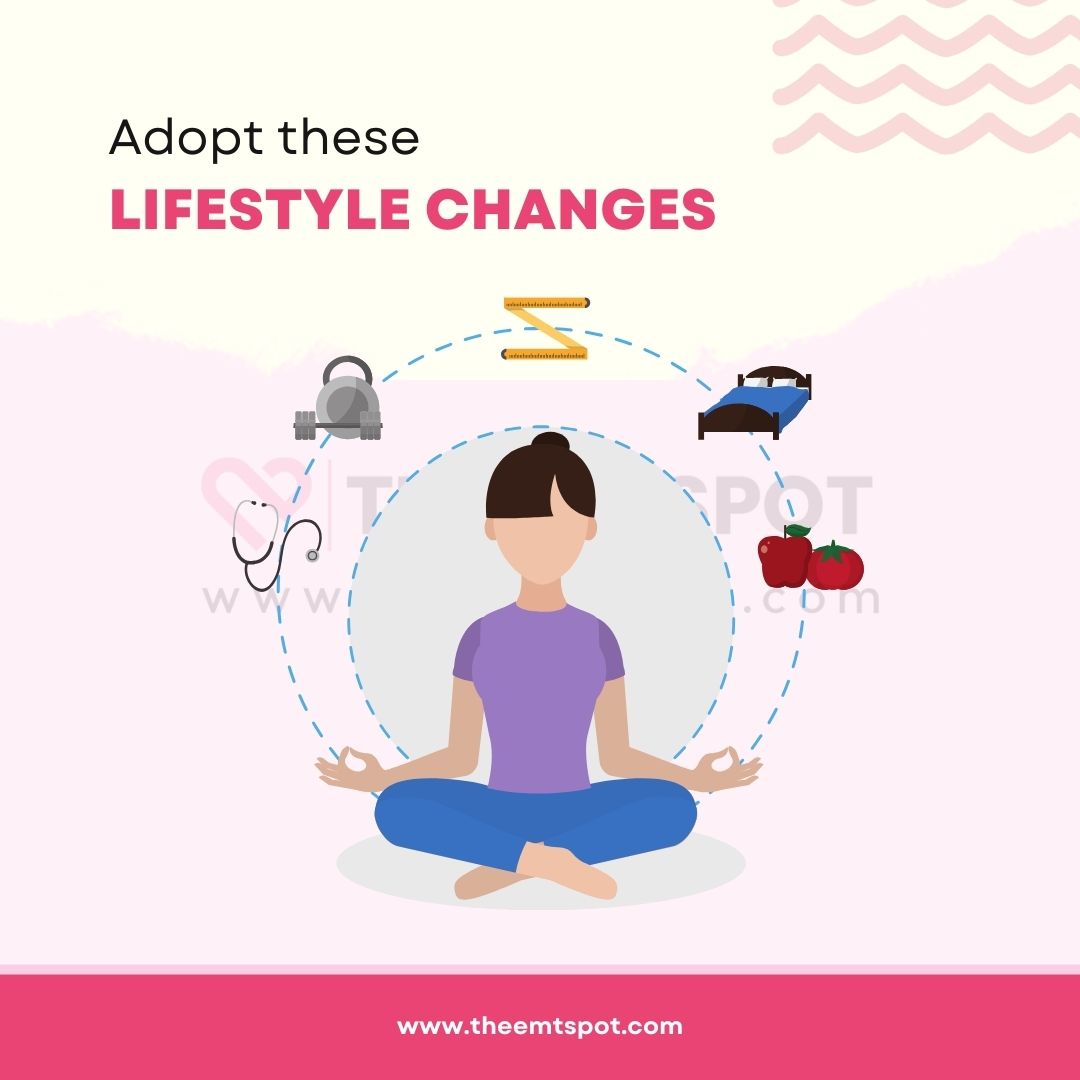
At 186/134 mmHg, you are needed to step into action to save your health and, more importantly, your life. Obviously, your doctor will immediately address this issue and stabilize you, but in the long run, you are needed to do some things.
Even though chemical drugs could ease your blood pressure, some lifestyle modifications are very important at this stage.
The first and foremost thing to keep in your mind is what goes inside your body. Your food is a critical factor to be bridled at this stage. You may need to critically scrutinize your eating habits as a first step.
Also, exercising needs to be incorporated only according to your doctor. Because at this stage, your body has already hit the maximum limit your blood vessels can handle. Therefore, consult your doctor and add some workouts to your life.
According to Harvard School of Public Health’s Healthy Living Guide 2020/2021, below are six suggestions that could help with your heart health.
- Have proper rest and sleep every day.
- Maintain a healthy body weight.
- Eat healthy meals and exercise daily.
- Quit smoking and limit the consumption of alcohol.
- Bring the substitutes of sodium salts into use.
- Do not indulge in stressful situations.
3. Consider using blood pressure medications
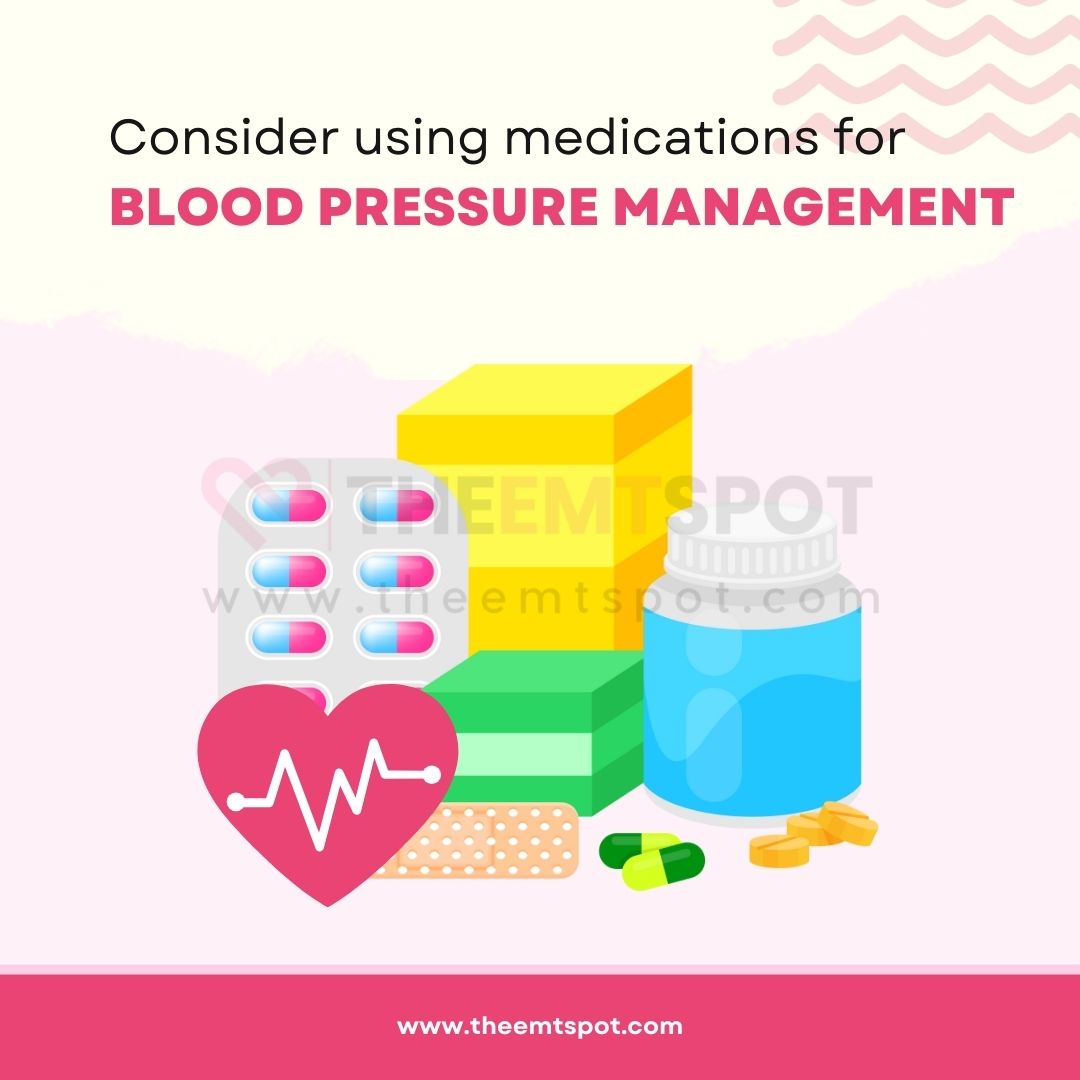
Medications and hospital care are the most important things at this stage. Your doctors might prescribe any one of the below classes of drugs alongside some treatment to handle comorbidities.
Researchers from George Washington University (Oster, J. R., Materson, B. J. & Perez-Stable) wrote a book in 2023 on Antihypertensive Medications, which recommends various guidelines, and according to it, all patients with stage 2 hypertension should start antihypertensive medications to achieve a blood pressure target lower than 130/80.
Here are a few of the popular classes of drugs that might be given to manage your 186/134 blood pressure.
- Diuretics (Water Pills): These are the medicines that help in the retention of sodium from the body by urination or sweating. This in turn, decreases sodium concentration in the bloodstream and helps lower high blood pressure.
- Calcium Channel Blockers: These are the medications that limit the mixing of calcium ions and compounds in the bloodstream. Calcium is actively responsible for the narrowing of blood vessels. By restricting it, relatively moderate blood pressure is ensured.
- Angiotensin II Receptor Blockers: these are medicines that consist of drugs that oppose the narrowing of the blood vessels. Using these, lower blood pressure is exercised in the blood vessels.
- Diltiazem: These are the medicines that control the minerals in the bloodstream that serve to be a possible cause of high blood pressure in people. These medicines regulate the concentration of the said minerals in the blood, hence lowering blood pressure.
- Beta Blockers: These are the medicines that help lower the pressure that is exerted over the heart, therefore lowering the heart rate. By lowering the heart rate, the pressure over the blood vessels is lowered.
4. Craft a balanced blood pressure-friendly diet
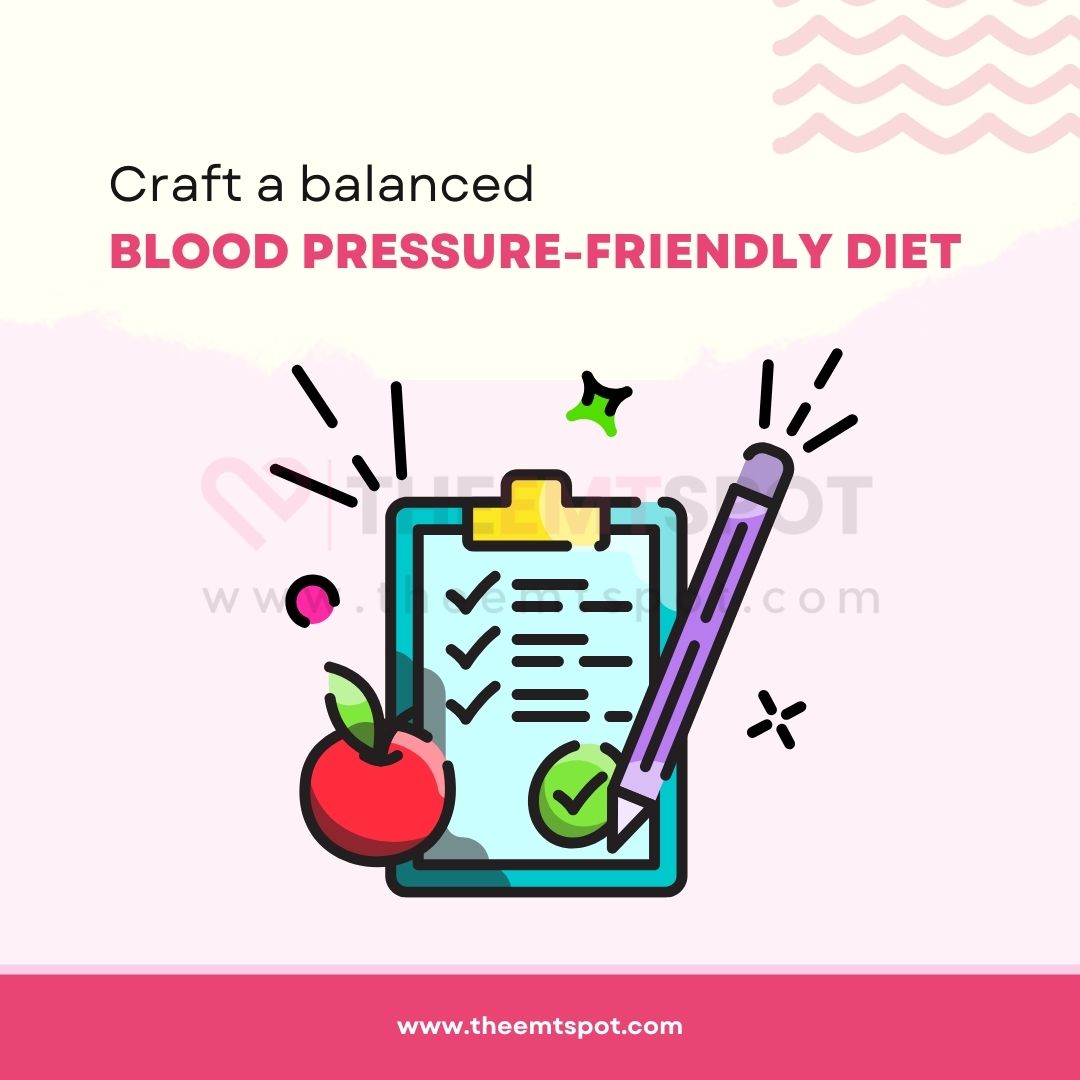
As mentioned above, whatever goes inside your body is a big matter of concern at this stage and therefore needs to be evaluated.
As you might have guessed, yes, you can have everything if your doctor has clinically diagnosed 186/134 mmHg.
You may need to follow a stringent diet plan to bring your pressure levels back to something that is more treatable and manageable.
The following are the factors that should be kept in mind when making your dietary plan for high blood pressure.
- Lower the sodium intake: Sodium can serve to be a major elevator for blood pressure. Hence, to get normal blood pressure, limiting its concentration in the bloodstream is necessary.
- Limit the alcoholic beverages: alcohol acts as a vasodilator, but in higher concentrations, it can also serve to increase blood pressure. So, only limited consumption of it is needed to be supported.
- Sugar: Added alongside the effects of high blood pressure, intake of excess sugar may lead to problems like diabetes and such.
- Caffeine: caffeine products are known to increase blood pressure in people. For those suffering from hypertensive crisis, this is a big no.
- Salts: instead of making use of sodium salt, it would be good if you were to consider the usage of other salts. Calcium and potassium salts serve as good substitutes for sodium salts.
- Herbs and spices: some spices and herbs are known to lower blood pressure to a great extent. If you were to include those in your diet, these would greatly benefit you.
5. Monitor for additional health conditions associated with hypertensive crisis
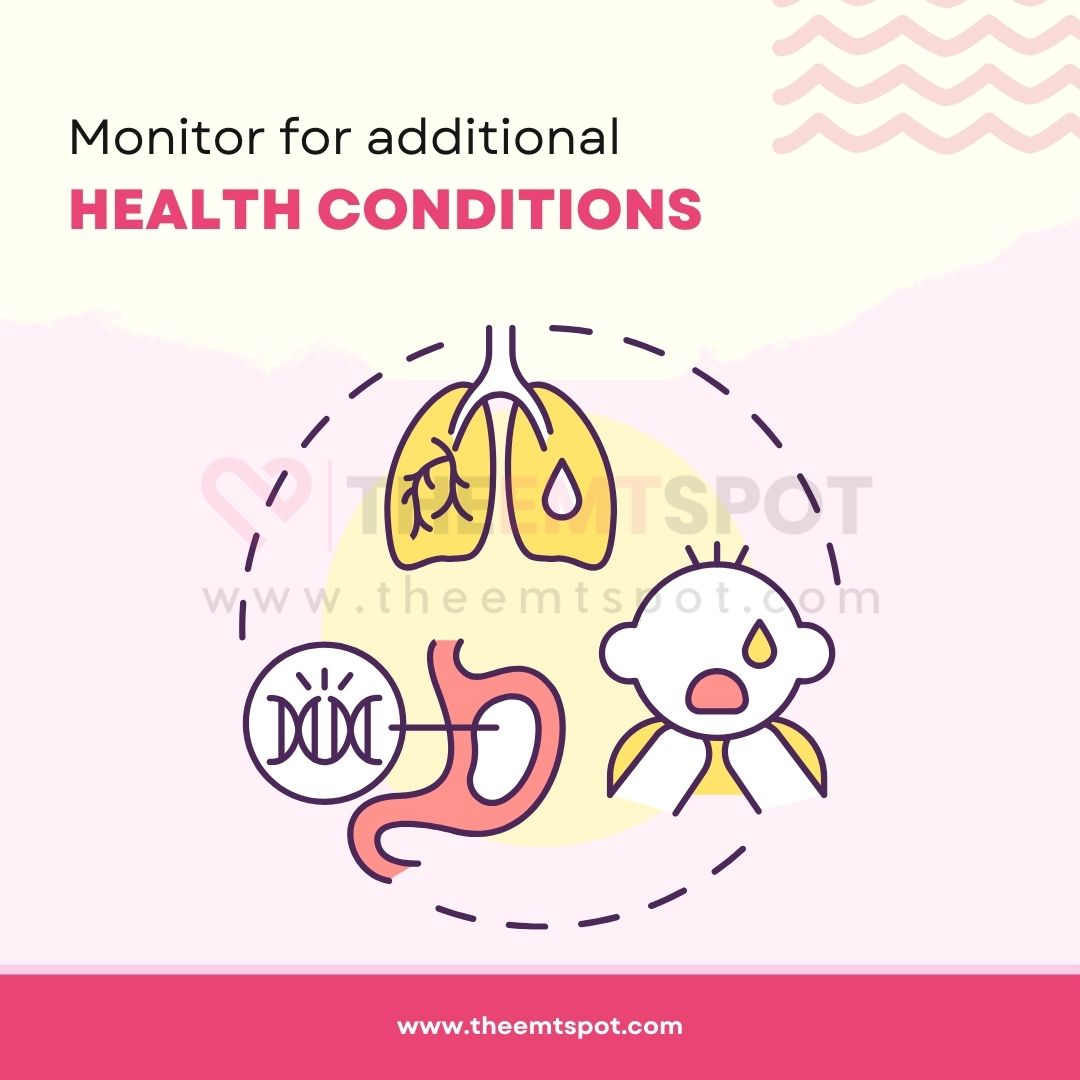
If your blood pressure reading is 186/134 mmHg, then you may want to be extra careful and watch out for some health concerns explained below.
Hundreds of studies highlight the correlation between obesity and hypertension. Among them, there is a study “Highlights of mechanisms and treatment of obesity-related hypertension” published in 2022 in Nature by Elham Shams and his team, which clearly suggests that individuals with obesity are five times more likely to experience cardiovascular events.
If you are currently obese and your BMI is 30 or more, then a hypertensive crisis implies an impending stroke or heart attack.
In fact, obesity is identified as one of the major comorbidities that can aggravate your blood pressure condition.
Apart from that, kidney failure, diabetes, and sleep disorders are some of the other risk factors that can be associated with your 186/134 blood pressure.
One of the biggest risk factors is stress and anxiety, which can be deadly at this stage of your cardiovascular condition. Therefore, you may want to calm yourself down to keep things smooth.
6. Try natural dietary supplements
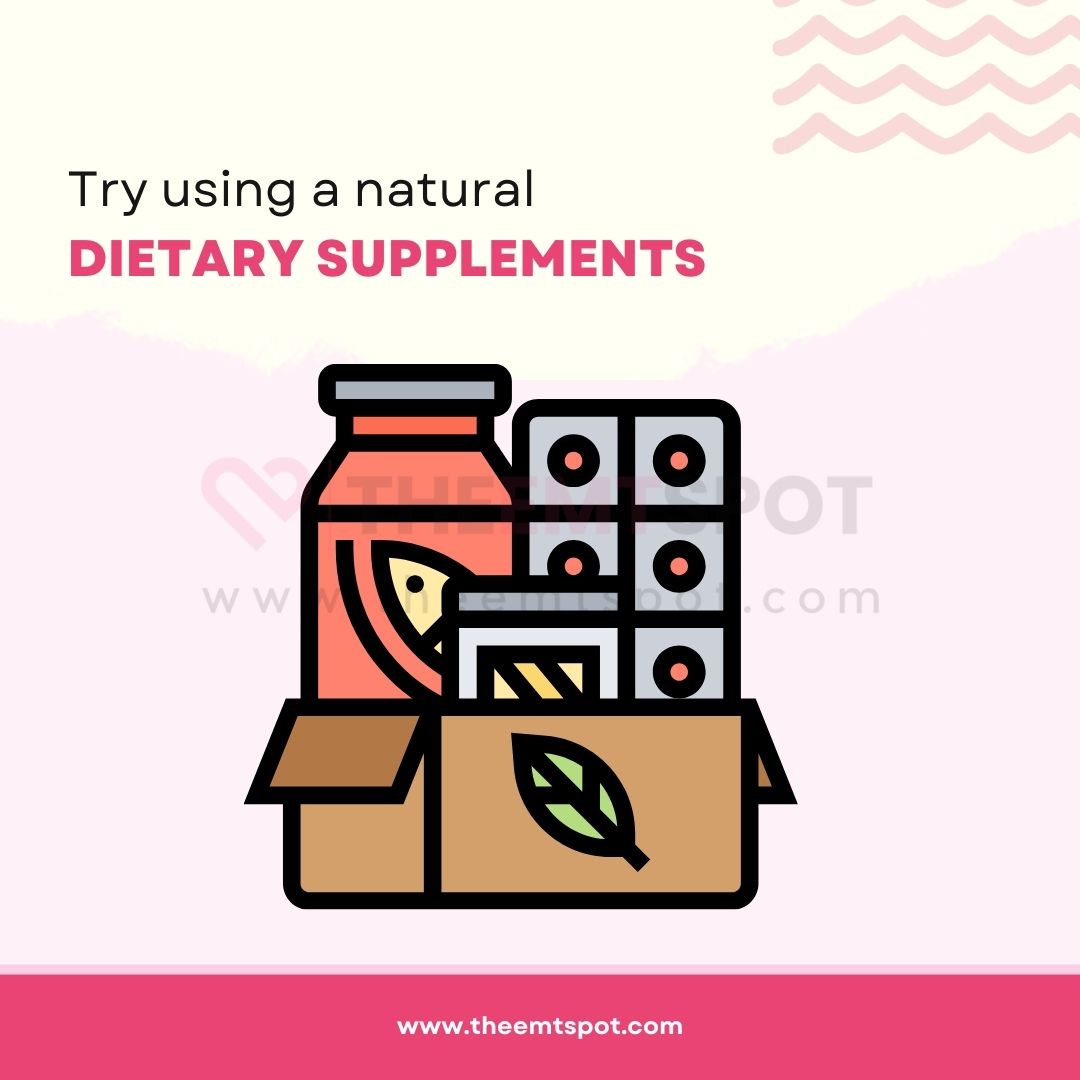
Sometimes managing blood pressure is all about supplementing your body with the right diet. Food is undoubtedly the best primary source to supplement your body.
However, in the current scenarios, we all know how much adultered our foodstuff is, and most of us are pushed towards processed foods to feed ourselves in this fast-paced world.
All these food are high in sugar and sodium and doesn’t contain any vital nutrients that are important for a healthy heart.
This is where some of the nutraceutical-based blood pressure supplements come in handy. These products combine all critical nutrients your heart craves, thereby assisting the better function of your cardiovascular system.
A meta-analysis study from 2022 “The Effect of Herbal Supplements on Blood Pressure: Systematic Review and Meta-Analysis” by Polish researchers from the Medical University of Lodz (Anna Lipert, Iwona Szadkowska, Ewelina Matusiak-Wieczorek, Ewa Kochan) reviewed the impact of nutraceutical products derived from cherry juice, beetroot juice, bergamot extracts, and barberry.
The study found that these substances significantly improved heart health by reducing high blood pressure levels.
Generally, these supplements are a concoction of herbs, plant-based products, dairy products, and some animal products. They are 100% organic and natural and don’t contain any harmful chemicals.
If you are hearing about these segments of products for the first time, to start with, you may blindly go for Blood Pressure Support from Vita Balance Inc.
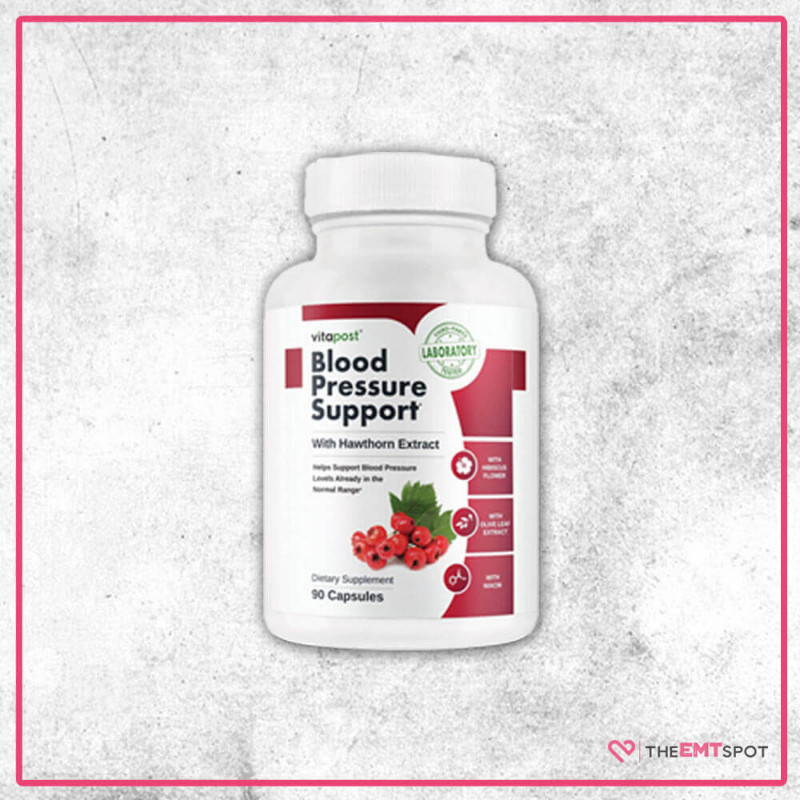
Blood Pressure Support
Blood Pressure Support combines hawthorn berry, olive leaf, hibiscus, and some vitamins like C, B6, B12, niacin, and folate alongside a bunch of other medicinal herbs to support the healthy working of the heart.
The only one thing to keep in mind is that choose the best supplement supporting healthy blood pressure, because when it comes to the heart, there is no taking of risk!
A person suffering from a hypertensive crisis needs to get through to a medical professional as soon as possible. This condition can lead to many possible life-threatening diseases and problems shortly.
Hence, it becomes necessary to consult with a professional and come up with medicines that are best suited for you.
What should you do when your blood pressure is 186/134 mmHg during pregnancy?
A blood pressure reading of 186/134 during pregnancy is extremely high and represents a medical emergency that demands immediate hospitalization.
According to a study published in NCBI in 2023 “Preeclampsia. Obstetrical and Gynecological Survey”, this could indicate severe preeclampsia, a pregnancy complication characterized by high blood pressure and potential damage to vital organs like the liver and kidneys, and lead to 500,000 fetal deaths worldwide.
At such elevated levels, the life of both the mother and baby could be at serious risk.
If you find yourself or someone else experiencing this blood pressure range during pregnancy, it is imperative to seek emergency medical attention right away.
Is blood pressure 186/134 mmHg high for a male?
For men, a blood pressure of 186/134 mmHg is dangerously high and categorizes as hypertensive crisis. This isn’t just a signal for stage 1 or stage 2 hypertension; it’s an immediate medical emergency.
With blood pressure levels this high, the risk of life-threatening complications such as stroke, heart attack, and organ failure is significantly increased.
Immediate hospitalization is required for prompt treatment and stabilization.
Is blood pressure 186/134 mmHg high for a female?
For women, a blood pressure reading of 186/134 mmHg is equally alarming and constitutes a hypertensive crisis.
This severe elevation in blood pressure poses a grave risk of catastrophic events, such as stroke, kidney failure, and heart attack.
This is an extreme medical emergency that demands urgent hospitalization and aggressive treatment, likely involving intravenous (IV) medications to quickly bring the blood pressure down and close monitoring to avoid organ damage.
Is blood pressure 186/134 mmHg high for children?
A blood pressure reading of 186/134 in children is exceptionally high and represents an immediate medical emergency.
In children, blood pressure levels this high could lead to severe organ damage and other catastrophic outcomes.
According to a team of researchers (Cal H. Robinson and Rahul Chanchlani) from The Hospital for Sick Children, Canada, who published in 2022 a report “High Blood Pressure in Children and Adolescents: Current Perspectives and Strategies to Improve Future Kidney and Cardiovascular Health. Kidney International Reports” several factors during the perinatal period are linked to blood pressure in children, such as low birth weight, being born prematurely, and maternal aspects like preeclampsia, blood pressure, age, and BMI.
Emergency medical attention should be sought immediately for diagnosis and treatment, likely including prompt medication to rapidly lower the blood pressure and tests to rule out potential underlying conditions or complications.
Is blood pressure 186/134 high for an adult?
For an adult, regardless of age or gender, a blood pressure of 186/134 mmHg is a severe medical emergency known as a hypertensive crisis.
With levels this high, the individual is at imminent risk for a variety of life-threatening complications like stroke, heart failure, and organ damage.
Emergency medical services should be sought immediately for rapid treatment to lower the blood pressure and to evaluate and manage any organ damage that may be occurring.
Is blood pressure 186/134 mmHg high for an elderly?
For elderly individuals, a blood pressure of 186/134 is extremely dangerous and mandates immediate emergency care.
The elderly are often already at a higher risk for cardiovascular diseases, and a hypertensive crisis could rapidly escalate into life-threatening complications, including organ failure, heart attack, and stroke.
Immediate intervention with medication and close monitoring is crucial.

 Robin Backlund is a dedicated journalist and a medical student who has written several articles and essays exposing the falseness and hollowness of online resources in the medical science niche.
Robin Backlund is a dedicated journalist and a medical student who has written several articles and essays exposing the falseness and hollowness of online resources in the medical science niche.